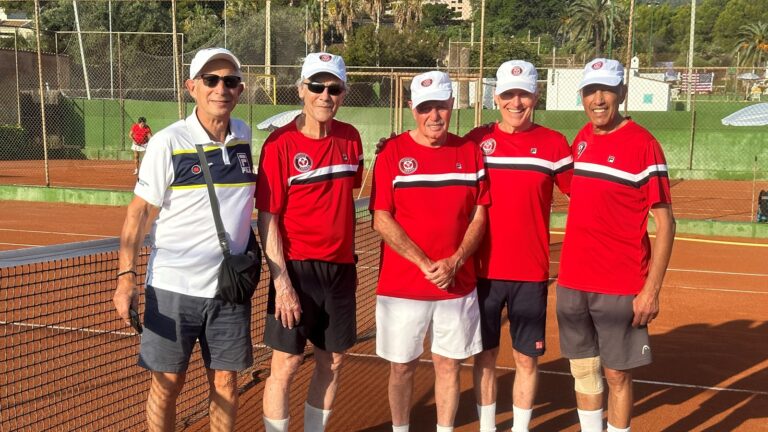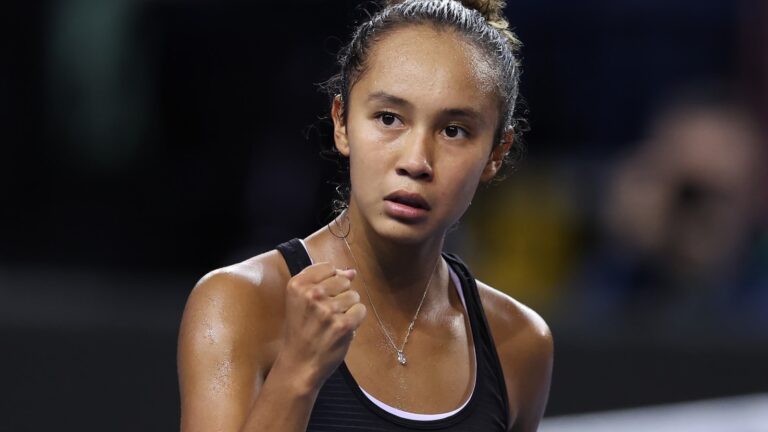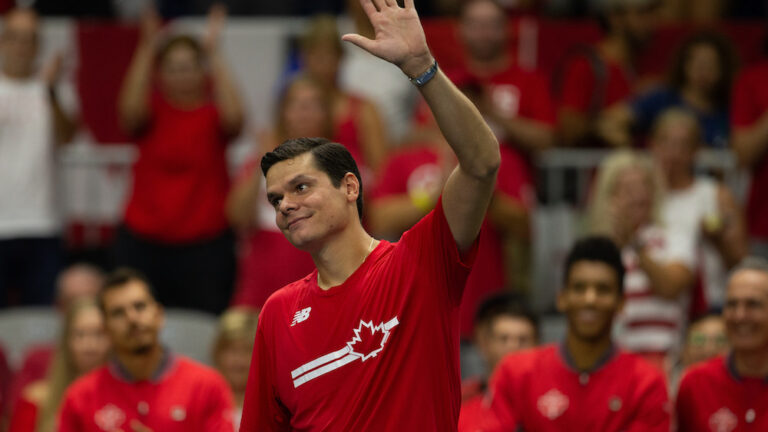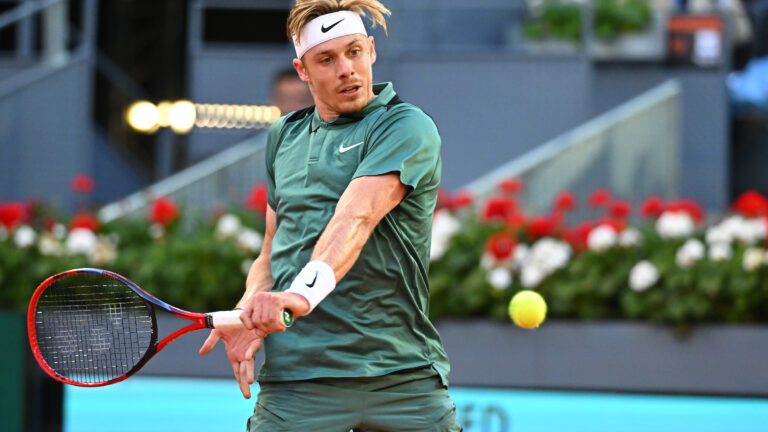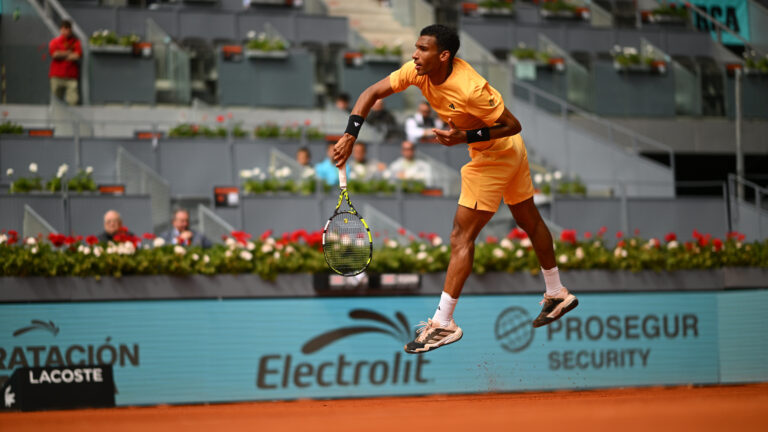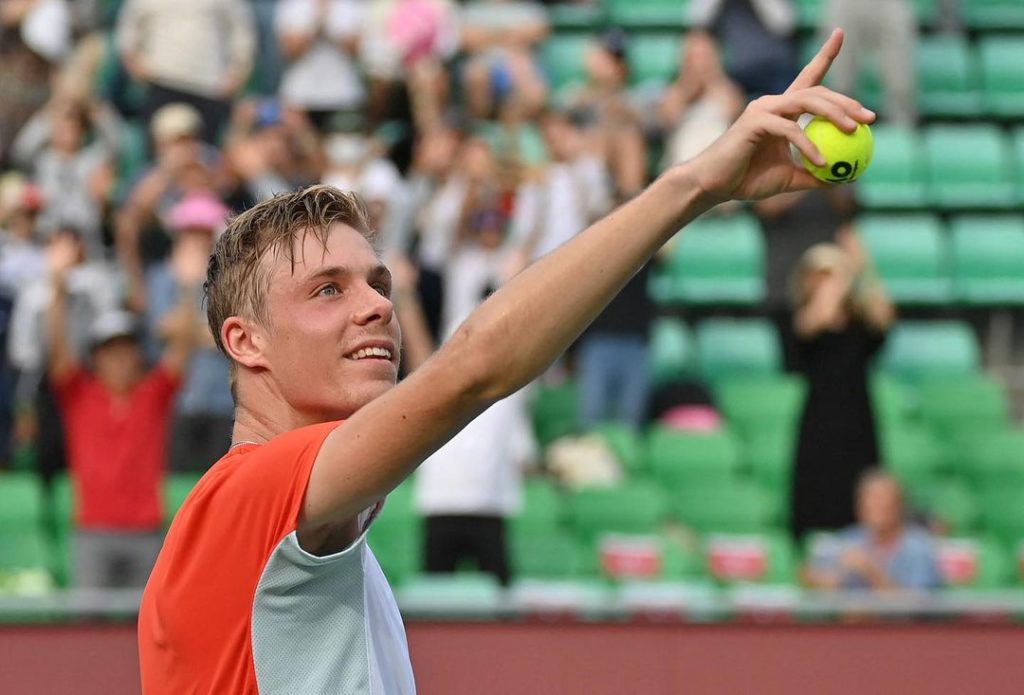
What a relief!
It’d been a while since I’d seen Denis Shapovalov play four straight matches with such skill.
I’m talking about those four matches at the ATP 250 Eugene Korea Open Tennis Championships in Seoul.
As for his opponents No. 59 Jaume Munar (59th), No. 91 Radu Albot and No. 46 Jenson Brooksby (46th), who played some fantastic tennis despite their respective rankings, Shapovalov made them all disappear with a flick of his magic wand.
Or should I say, magic racket. The one that makes him a tennis magician.
But this time, our tow-headed wizard was a lot more patient than usual before casting his spell on his rivals.
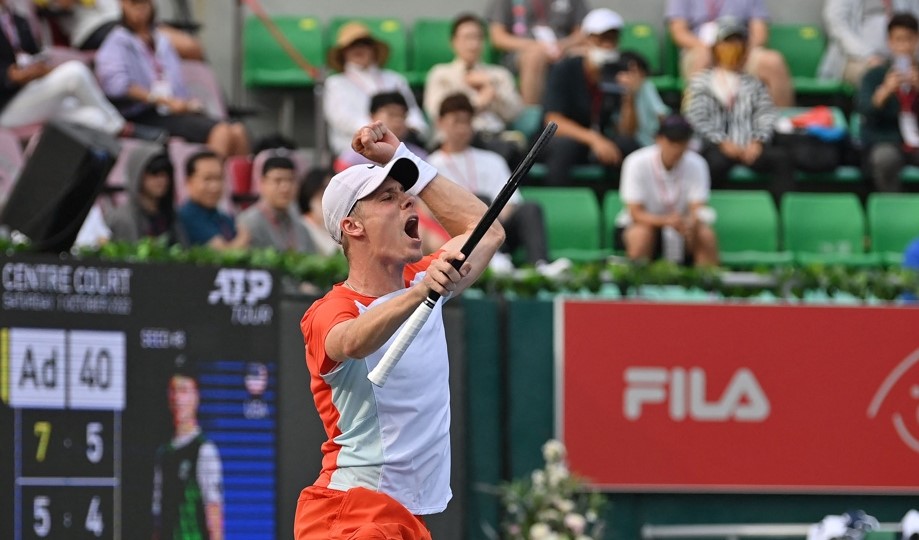
Three practically perfect productions and another superb demonstration during the final, which he lost to No. 41 Yoshihito Nishioka of Japan.
Much to the delight of everyone in attendance on site and at home, the final was jam-packed with 20- and 25-shot rallies. Shapovalov lost most of them to his metronomic rival, but the mere fact that he was able to wait them out is a clear sign of maturity. Because as spectacular as the Torontonian’s winners are, their modest chances of success ultimately get him into trouble.
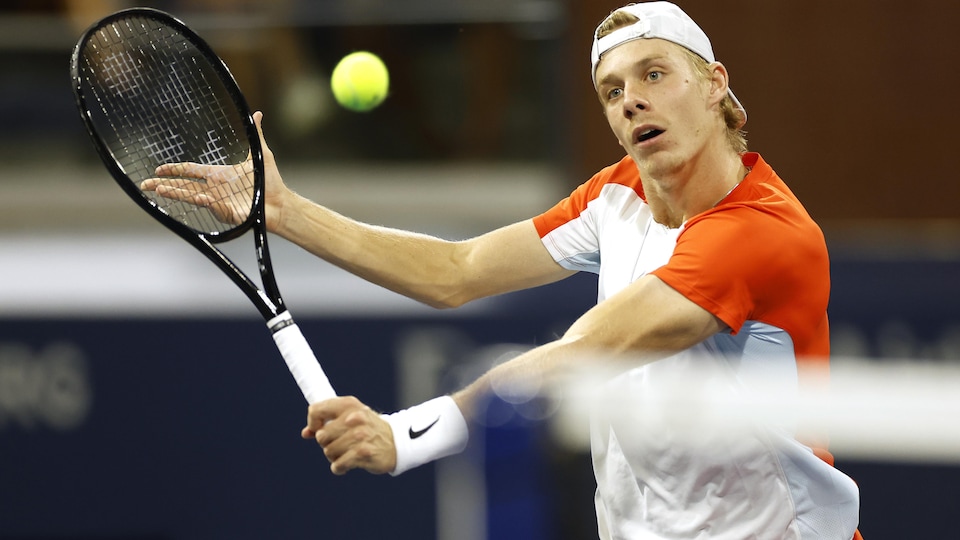
Shapovalov has nothing to be ashamed of in the 6-4, 7-6(5) loss. Nishioka played an absolutely perfect match by his standards.
So much so that I wonder how the Japanese ace hasn’t risen higher than his current No. 41 rankings. He may not be especially tall or especially powerful, but he’s formidably resilient. He’s even competed in five Challenger tournaments this season. Anyone who sat through the final must still be wondering how he was able to play at such a high level for over two hours.
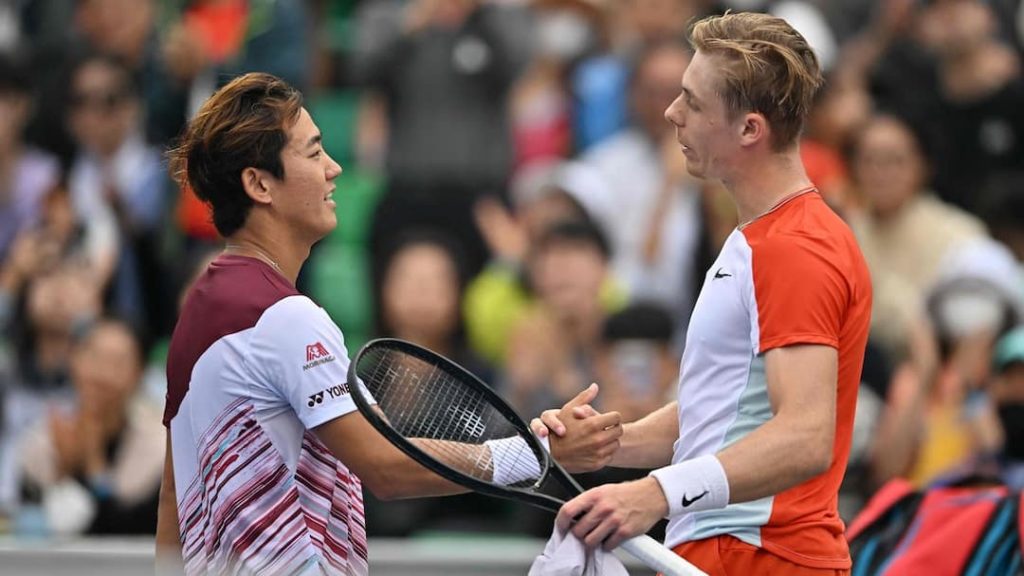
All the glory goes to the winner, but let’s keep in mind that Shapo’s new brand of tennis may be the trigger that will finally give substance to the lefty’s exceptional potential.
Indeed, Shapovalov delivered everything his immeasurable talent afforded him without any of the recurrent squandering his attitude can sometimes cause. He still made a few too many double faults (6 in the semi, 6 in the final), but his first serves were working for him (65% in 4 matches). His inclination to repeat his serve toss only manifested itself on rare occasions throughout the tournament.
Don’t get me wrong: I’ve been an avid fan of Shapovalov’s since I first saw him compete as a junior, all the way through his breakthrough in 2017 and quick rise into the Top 10.
But as time went on, his huge potential had to coexist with a mindset poker players are all too familiar with: going all in. As many commentators have said, there isn’t a stunt he hasn’t pulled, whether the timing was right or not.
And that’s what’s kept him where he is, with the occasional amazing match.
I hear what you’re saying: he’s only 23. He’s slowly maturing and will eventually find the right balance between doing what feels good and hitting a spectacular shot every time the opportunity presents itself and staying calm until there’s an opening in the rally.
And that’s exactly what I saw him do in Seoul.
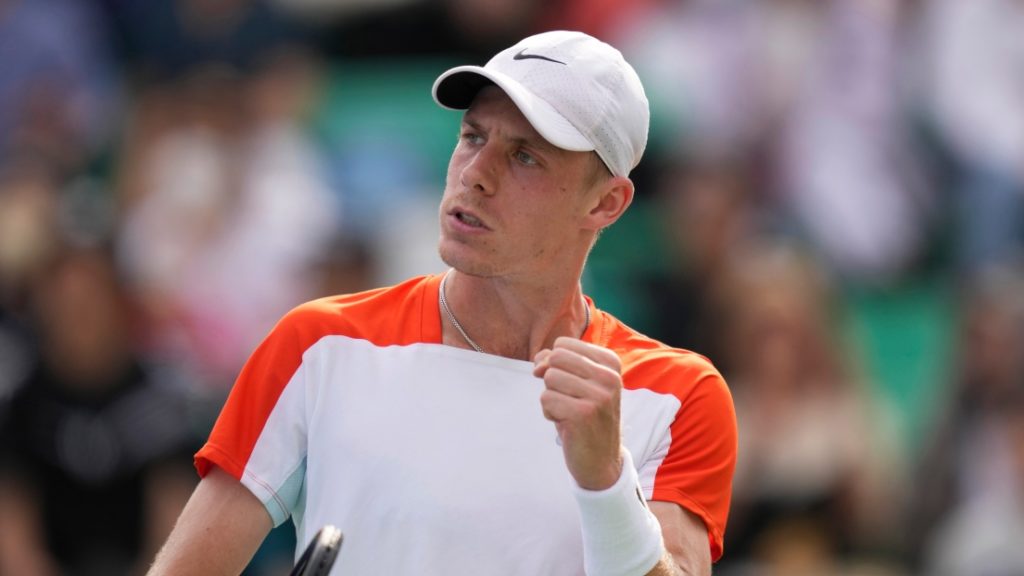
One tournament does not a season make, by any means, but you’ve gotta start somewhere. And that somewhere started with three weeks off after the US Open and some competition at an ATP 250 event at which he was seeded fourth. When the top three took their leave (Ruud eliminated by Nishioka, Norrie injured and Fritz out sick), Denis was suddenly the favourite as he entered the semis.
When he left Montréal after a first-round loss to Alex de Minaur, he was a on terrible streak of 9 losses in his last 10 matches. He flew out of South Korea with a 7–3 record.
I can’t wait to see how he wraps up the season.
To better prepare for the next one.
Hyeon Chung: back again
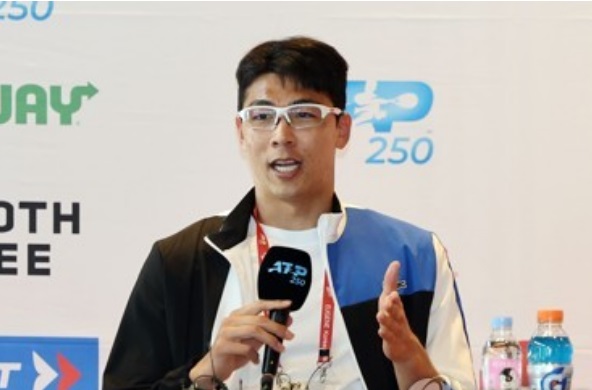
Does the photo remind you of anything? Of anyone?
In 2018, those white-framed glasses became the one-of-a-kind trademark of a South Korean ace named Hyeon Chung. Those glasses and his astounding potential.
After a relentless string of injuries and nearly five years after he dazzled the world in a Slam semifinal, Chung is re-emerging. Working to (finally) give substance to his immense talent, he made a comeback at the ATP 250 Eugene Korea Open Tennis Championships in Seoul, not too far from his hometown of Suwon.
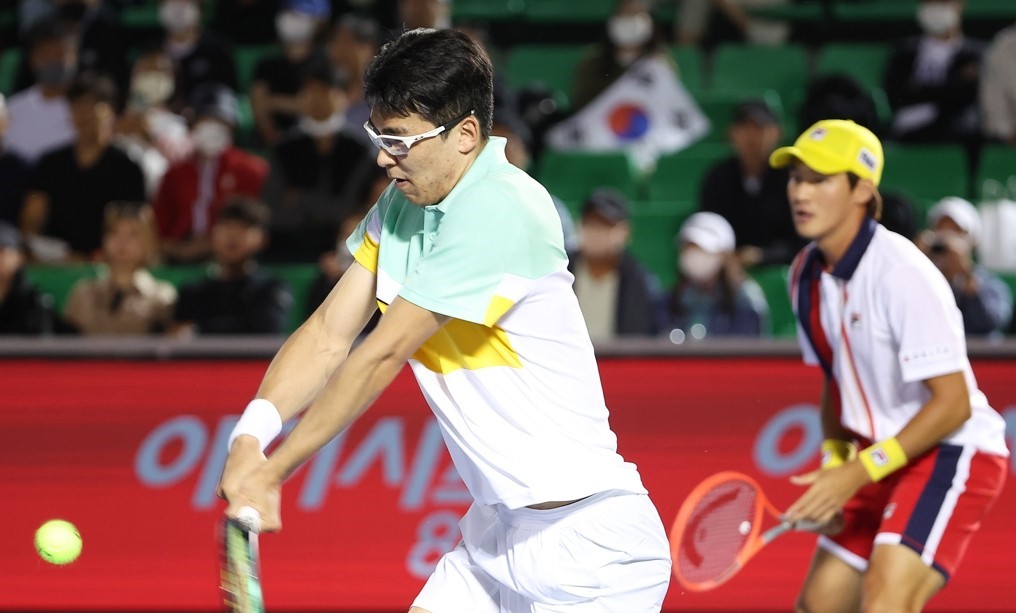
With Soonwoo Kwon, he played three doubles matches. The Korean team treated local fans to two wins, but fell in the semis to the second seeds, Nicolas Barrientos of Colombia and Miguel Angel Reyes-Varela of Mexico.
We all discovered Hyeon Chung at the same time: in 2017, at the very first NextGen tournament at which he dominated a field of players who’ve become the ATP’s new stars in the post-Big Three era.
The 21-and-unders who’ve competed at NextGen events include Medvedev, Tsitsipas, Rublev, Shapovalov, de Minaur, Tiafoe, Ruud, Hurkacz, Fritz, Sinner and Alcaraz. And you can count on future editions to keep introducing us to the members of the next Top 10s.
In 2017, Chung won it all. That fall in Milan, in the absence of Alexander Zverev who was already No.3, he was unbeatable, overpowering Medvedev, Shapovalov and Rublev. Twice.
But his meteoric rise was short lived.
When he started his comeback on September 28, 2022, it’d been 730 days since his last competitive match. And it’d been 1,710 days (244 weeks) since he stunned the tennis world with his semifinal berth at the 2018 AO.
Had you already forgotten? In January 2018, Hyeon Chung demolished Medvedev, Zverev and Djokovic in that order, back-to-back. While Medvedev and Zverev weren’t the players they are today, Djokovic definitely was.
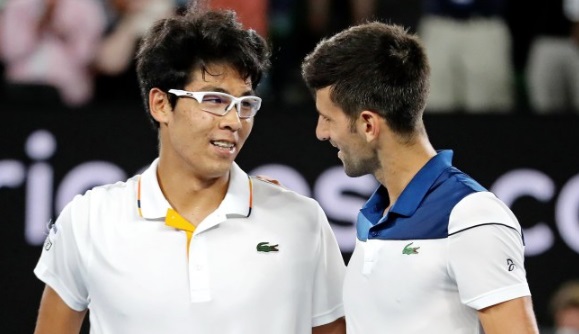
After pocketing a 7-6(4), 7-5, 7-6(3) win, Chung moved on to the semis, where Federer was waiting in the wings.
But the dream match was over soon. Trailing 1-6, 2-5, the up-and-comer suffered a huge blister on his left foot. As resilient as he had been since his emergence, he was but a shadow of his former self.
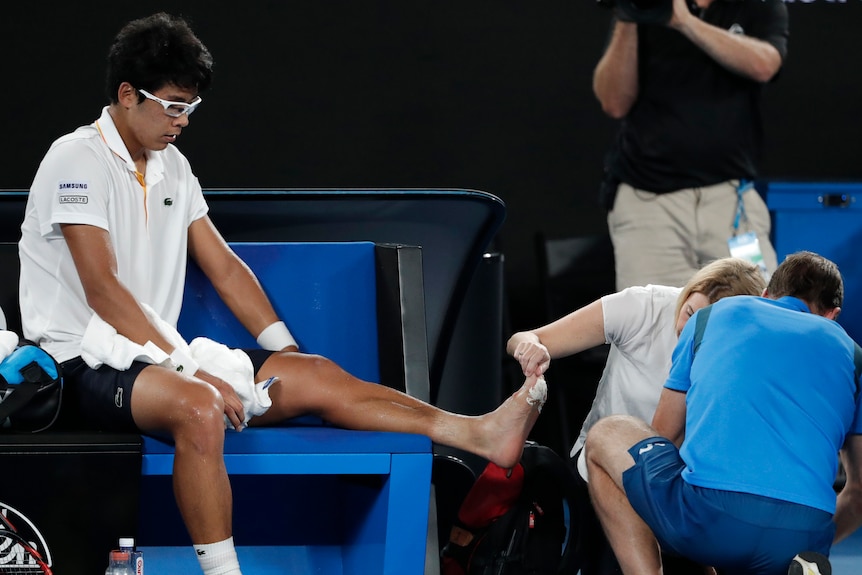
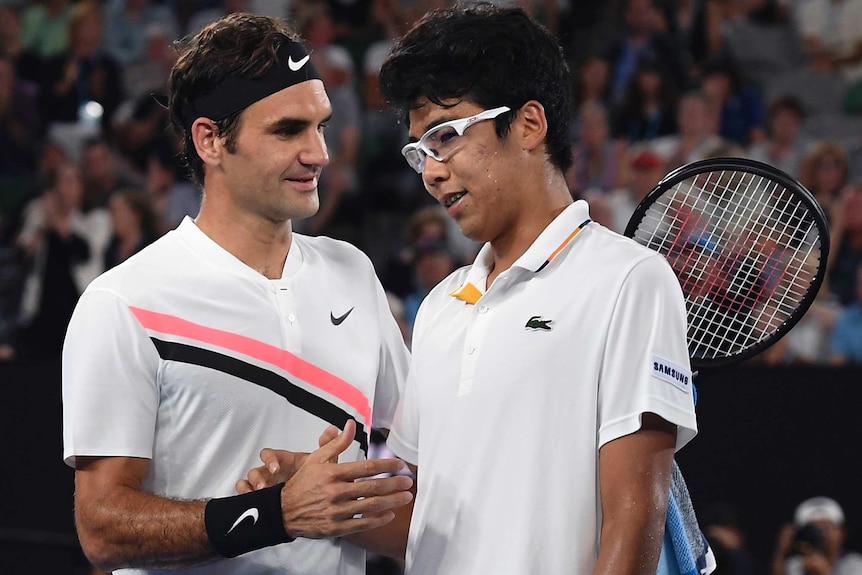
A few months later, on April 1, 2018, he ascended to No.19 on the heels of three straight quarterfinals and a semifinal.
Then began a slow descent into oblivion—a back injury that sidelined him for six months and a 10-14 record between April 30, 2018, and February 11, 2019.
When he came back to tennis at the Chengdu Challenger in China, he took the title and fueled hopes he’d be back on track in no time.

In 2020, he competed in only four matches—his fourth and last being a second-round loss when his back went out in the qualifiers of Roland-Garros against then No. 208 Renzo Olivo of Argentina.
So, what does the future hold for Hyeon Chung?
Only his health will tell. But how can we not wish him to be pain-free and reconfirm his genuine talent? After all, at 26, he could still have 10 good years to show us what he can do.
In 2020, he competed in only four matches—his fourth and last being a second-round loss when his back went out in the qualifiers of Roland-Garros against then No. 208 Renzo Olivo of Argentina.
So, what does the future hold for Hyeon Chung?
Only his health will tell. But how can we not wish him to be pain-free and reconfirm his genuine talent? After all, at 26, he could still have 10 good years to show us what he can do.
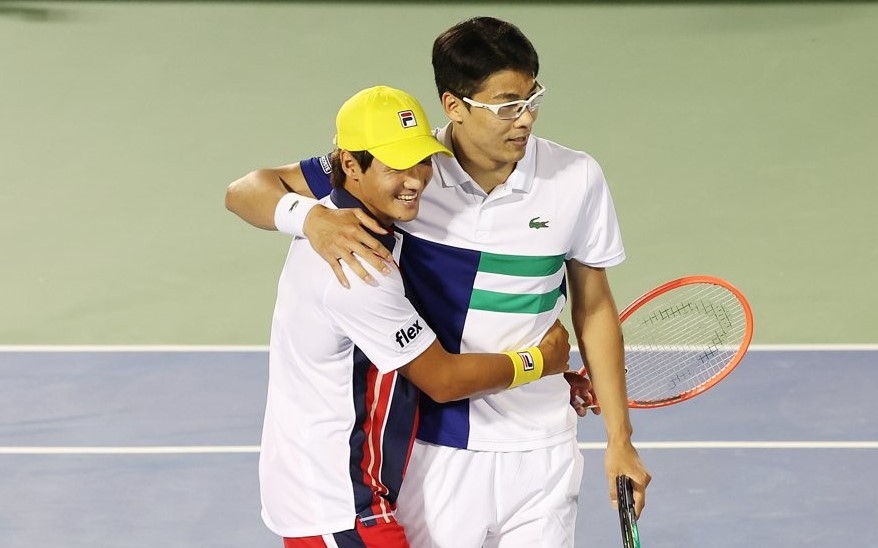
If anyone’s learned that everything in life is relative, it’s Hyeon Chung. On the day before the first match in his comeback, he was full of wisdom and lucidity: “I used to take tennis for granted, but now I’m just grateful for the chance to put my foot on the court.”
Cheap shot
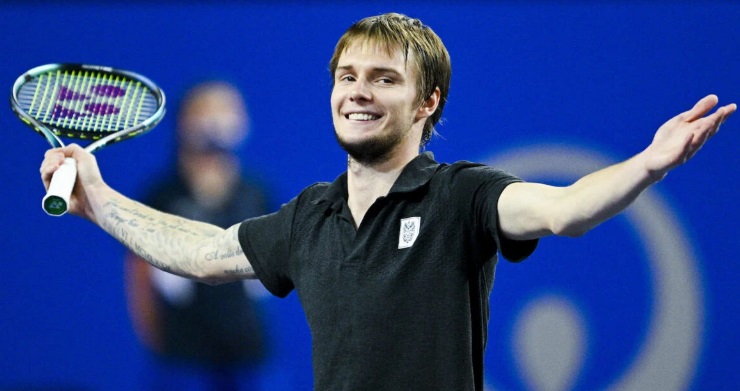
On the weekend tennis lost its model player in Roger Federer, one who embodies the opposite really stood out.
Namely No.44 Alexander Bublik of Kazakhstan.
In the final of the ATP 250 Moselle Open in Metz, France, Bublik decided to entertain the crowd. Against No.65 Lorenzo Sonego of Italy, he displayed some clownish—and insulting—behaviour.
And he looked foolish.
Still, Sonego got his revenge in the best way: by keeping up the fight and winning 7-6(3), 6-2.
I have nothing against spectacular shots, even the unnecessary ones, which the likes of Monfils, Kyrgios and Paire attempt at their own risk.
But, to me, hitting a shot with the racquet handle is insulting to one’s opponent.
Bublik made a fool of himself. He also lost the match and, most importantly, the little credibility he had left.
Tennis or hockey?
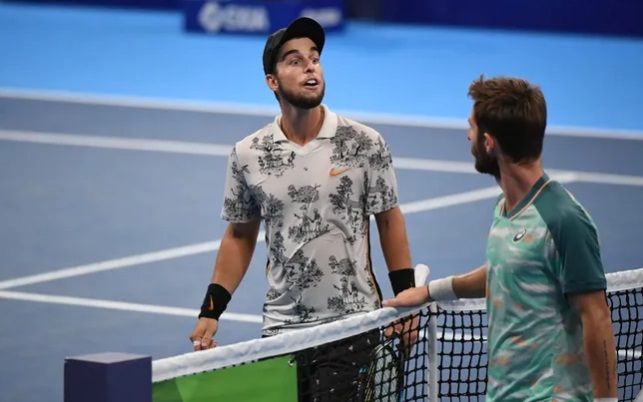
Shoulder hits are common when players fight for the puck around the net.
In hockey.
But not in tennis, where you never expect to see a shoulder hit like the one relayed on social media on September 29 after a match at the Open d’Orléans.
It was a local player who was booed—one who’s added his name to the inglorious list of players known to be temperamental, mercurial, hotheaded or whatever other such adjective you prefer.
It was 23-year-old Corentin Moutet.
At the outcome of a nearly three-hour match won by Adrian Andreev of Bulgaria (2-6, 7-6[3], 7-6[2]), the rivals’ meeting at the net was wholly unprecedented, and the images made their way around the world.
Afterwards, Moutet took to Instagram to say he had no intention of apologizing because his gesture was in reaction to Andreev, who’d said f–k you to him.
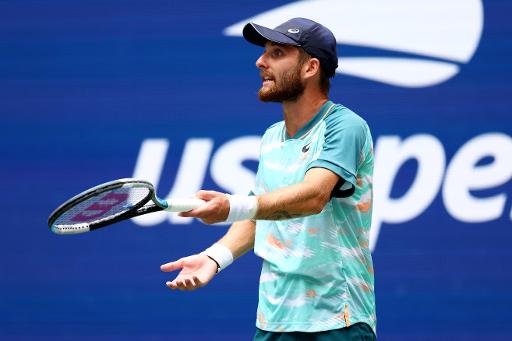
Unfortunately for Moutet, even the French have had it with his mood swings, which are standing in the way of better performances on the court.
Email: privard@tenniscanada.com
Twitter: @paul6rivard
Follow all our Canadians in action here.
